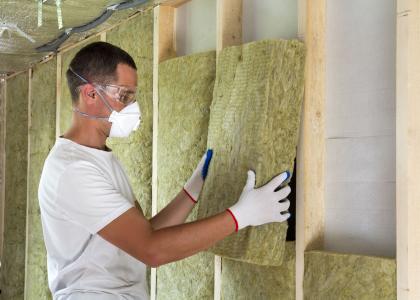Congress should…
- Restore and expand funding for the Industrial Assessment Center (IAC) program, which provides energy assessments to small- to mid-sized manufacturers and trains energy engineers.
- Increase funding for the Industries of the Future (IOF) program, which provides industry-specific research and development of energy-efficient technologies.
- Increase funding for further technology deployment at Industrial Technologies Program (ITP), particularly through the Save Energy Now (SEN) program, which provides energy assessments to large manufacturers, and other best practices, such as specialist training and software tools.
The Issue
After years of closely working with industry trade groups and manufacturers, we have identified several key barriers to greater energy efficiency in the industrial sector:
- Access to trained industry-specific expertise, including audit services
- Access to new technologies and best practices
- Access to a trained energy efficiency workforce
The U.S. DOE's Industrial Technologies Program in the Office of Energy Efficiency and Renewable Energy runs a series of effective programs designed to meet these needs. However, despite these well-performing programs, ITP funding has been cut by more than half in real dollars in the past decade. Restoring these programs will reduce the energy intensity and increase the global competitiveness of U.S.manufacturers
Summary
The IAC program is a long-running program that trains engineers in all aspects of industrial energy and process efficiency, which helps industrial companies overcome key barriers to greater energy efficiency by providing them with no-cost energy assessments and technical expertise. In addition to audits, the IAC is currently the only nationwide program that is training the next generation of energy-savvy engineers for the manufacturing sector. Currently, there are only 26 IACs across the country, and they are operating at half funding. More are needed to meet the demand for assessments and trained energy engineers. In addition, the IAC model should be expanded to include a wider range of workforce development, including installers, operators, and maintenance personnel.
The Industrial Technologies Program runs a number of other programs in need of increased funding. The Industries of the Future program provides needed technological breakthroughs for energy-efficient technologies for the most energy-intensive industries, including steel, aluminum, metal casting, forest and paper products, and chemicals. Because the research is co-funded and co-run by the industry stakeholders, it has an excellent track record of low development time and high market uptake.
In addition to the IAC program, ITP provides a number of other crucial technology deployment activities. Primary among these is Save Energy Now, which works with industries to help them decrease their energy intensity by providing energy assessments targeting energy-intensive industrial systems and helping deploy the industry-specific and cross-cutting research done by the IOF program. ITP's technology deployment also includes energy system specialist training and a suite of software tools to help facilities manage their energy use.
Another key program at ITP is the Distributed Energy Resources (DER) program. Distributed energy, including Combined Heat and Power (CHP), is an area with great energy savings potential in the industrial sector. Currently the DER program focuses primarily on commercial and institutional CHP. ACEEE feels that the program should develop a strong industrial CHP program, and coordinate with other ITP programs.
For More Information:
ACEEE’s Industry Program: http://www.aceee.org/about/programs/industry
Information on Industrial Assessment Centers: http://www.aceee.org/topics/iac


